We’ve all been there – those dreaded days when period cramps and PMS symptoms strike. The discomfort, mood swings, and bloating can make life feel like a rollercoaster. In this article, we’ll explore some true and scientifically-backed remedies to help you conquer those pesky period woes.
Imagine waking up to a soothing combo of soaked raisins and saffron (Kesar) that not only ease period pain but also tackle those moody blues. Or how about adding bananas to your diet to wave goodbye to bloating and cramps? According to nutrition experts Rujuta Diwekar, incorporating certain foods can provide lasting relief during Menstruation.
We’ll also unveil the wonders of Garden cress( Aliv seeds / Halim seeds) , ghee, and ginger, natural remedies to boost your health and comfort during those 5 days of the month. Plus, chamomile tea, hydration, pineapples, and kiwi – simple yet powerful allies to tame inflammation and promote overall well-being.
Also Check – What Do Period Cramps Feel Like?- Signs , Symptoms, Severity , FAQS Explained
Foods That Help Relieve Period Cramps and PMS Symptoms
Soaked Raisins and Kesar (Saffron)
The combination of soaked raisins and Kesar (saffron) not only helps relieve Period (menstrual) pain, but can also help with PMS mood swings. Taking 4-5 soaked Raisins overnight with a pinch of Kesar in the morning has been found to be very effective in relieving menstrual pain.
Raisins serve a dual purpose in this combination. Not only are they a naturally sweet and nutritious snack, but they also act as a natural laxative, regulating the digestive process and promoting healthy bowel movements. On the other hand, studies suggest that saffron, also known as kesar has a positive effect on treating PMS symptoms as well as depression.
While these results are encouraging, it is important to note that individual experiences may vary. It is always recommended to consult a doctor before adding any new remedies or supplements to your routine.
Bananas
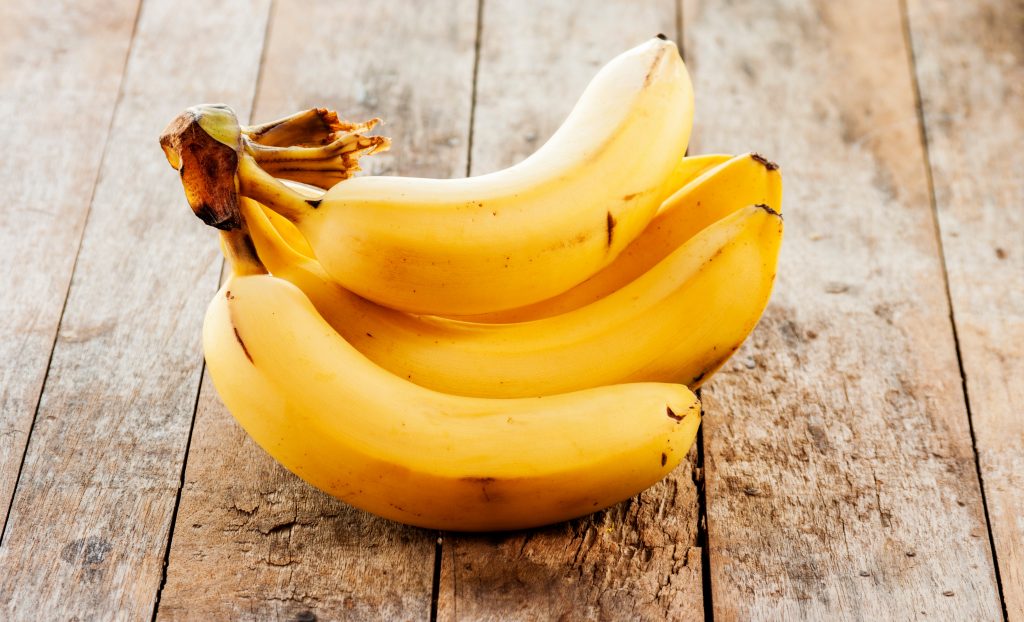
Rujuta Diwekar, a well-known expert in nutrition, recommends including bananas in your diet during your monthly cycle. Bananas, in all forms – as a whole fruit, in flour, or in savoury dishes like flower bhaji – have been found to be effective in reducing period symptoms. This versatile fruit can be easily incorporated into your meals or enjoyed as a quick and nutritious snack between meals.
One of the primary reasons bananas are beneficial during menstruation is their rich nutritional profile. They are particularly abundant in two essential nutrients- vitamin B6 and potassium. These nutrients play a crucial role in relieving bloating and cramps, which are commonly experienced during periods.
Vitamin B6, also known as pyridoxine, has been associated with mood regulation. During menstruation, hormonal fluctuations can often lead to mood swings and emotional fluctuations. Consuming foods rich in vitamin B6, such as bananas, can help stabilise mood and alleviate some of the emotional challenges that accompany the menstrual cycle.
Potassium, on the other hand, is an essential mineral that regulates fluid balance in the body. Water retention is a common issue experienced during menstruation, leading to feelings of discomfort and bloating. By consuming potassium-rich foods like bananas, you can help regulate fluid balance and reduce the discomfort associated with water retention.
Also Check – 17 Essential Positions to Help Relieve Period Cramps
Root and Tuber Vegetables
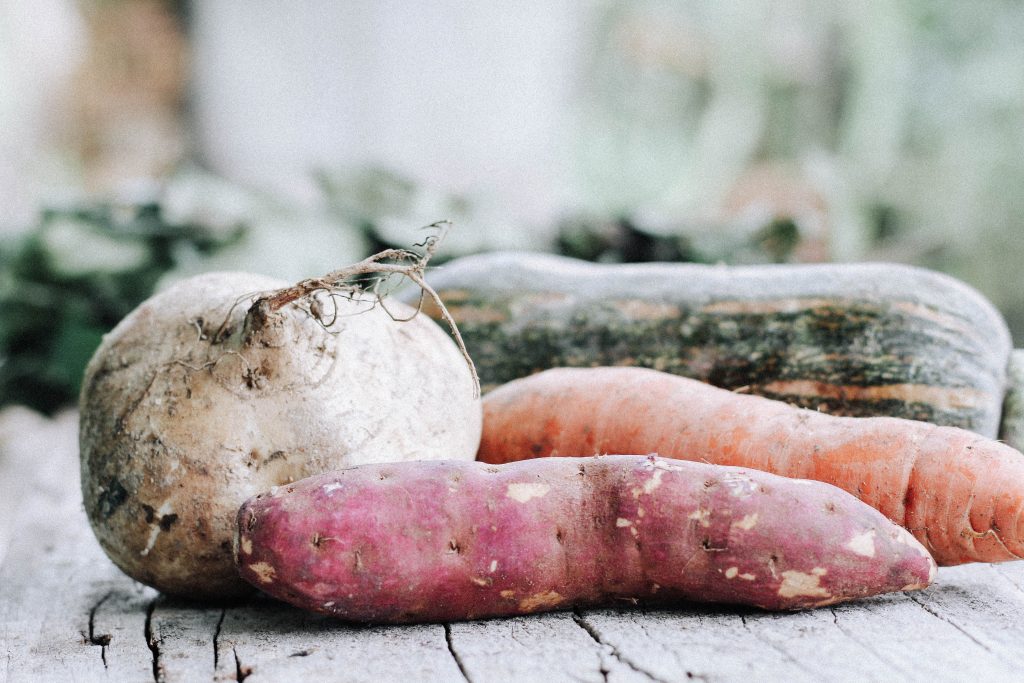
Rujuta Diwekar recommends incorporating root and tuber vegetables, including sweet potatoes, Arbi (taro root), radishes, and beetroot, into your diet during your period. These vegetables offer a wide range of benefits that contribute to managing period pain and promoting overall well-being.
One of the key advantages of root and tuber vegetables is their high fibre content. Fibre plays a significant role in supporting healthy digestion. During menstruation, some women may experience digestive issues, such as constipation or bloating. Consuming fibre-rich foods can help regulate bowel movements and alleviate digestive discomfort.
Additionally, root and tuber vegetables contain polyphenols, which are plant compounds known for their anti-inflammatory properties. Inflammation is a common underlying factor in menstrual pain, and these vegetables can help reduce inflammation, leading to reduced discomfort during periods.
Apart from their benefits on the inside, root and tuber vegetables contribute to keeping your skin supple and smooth. They are rich in various vitamins, minerals, and antioxidants that nourish the skin, making it an added bonus during your menstrual cycle.
Whole-Grain Foods
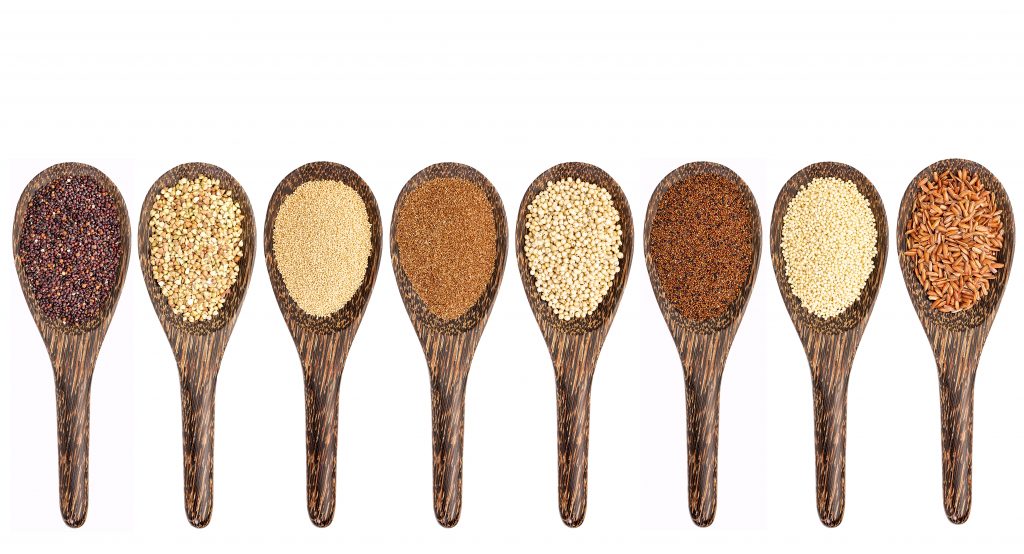
Incorporating whole-grain foods like millet, buckwheat, and amaranth into your diet can be highly advantageous in managing period-related discomfort. These grains are packed with essential nutrients, including magnesium, which can help relax muscles and alleviate cramps.
One of the significant benefits of whole grains is their magnesium content. Magnesium is known to have muscle-relaxant properties, which can help reduce the intensity of menstrual cramps. By consuming these whole grains, you provide your body with an additional source of magnesium, potentially leading to more comfort during your period.
Furthermore, whole grains offer sustained energy release due to their complex carbohydrate content. The menstrual phase can be physically draining for some women, leading to feelings of fatigue and low energy. Whole grains provide a steady and sustained energy source, helping you stay more active and energetic throughout your period.
In addition to their pain-relieving properties, whole grains contribute to a balanced diet, promoting overall well-being during menstruation. Replacing refined grains with whole-grain alternatives is a smart choice to maximise the benefits and support your body during this time.
Also Check – Yoga for Period Relief – 8 Poses to Relieve Menstrual Cramps, Pain, and Irregularity
Aliv (Garden Cress Seeds)
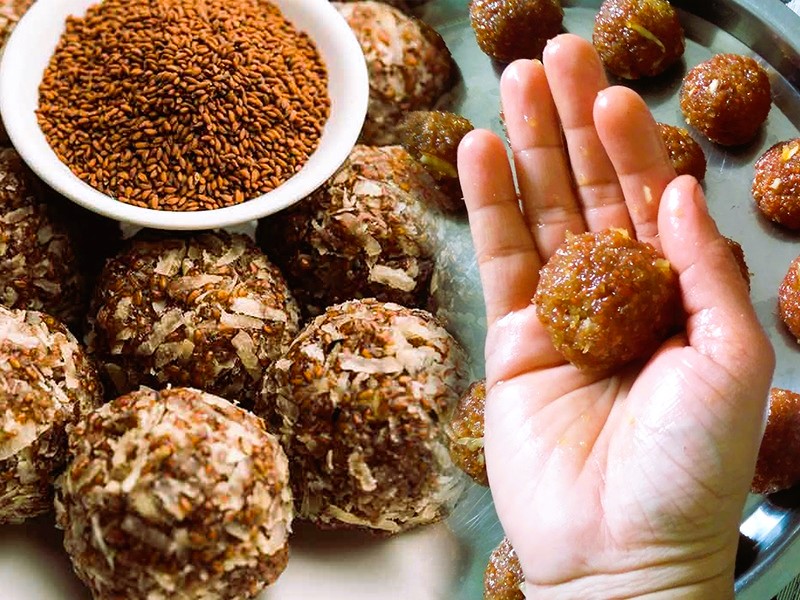
Aliv seeds, also known as garden cress seeds, are small but mighty nutritional powerhouses that can provide much-needed relief during your period. These seeds are packed with essential nutrients, particularly folic acid and iron, which play a vital role in maintaining overall health and well-being.
Folic acid, also known as vitamin B9, is crucial for the production of red blood cells and the synthesis of DNA. During menstruation, some women may experience a slight decrease in haemoglobin levels due to blood loss. Aliv seeds, with their high folic acid content, can help in replenishing the body’s red blood cells and maintain healthy haemoglobin levels. This can prevent anaemia and help you feel more energised during your period.
Furthermore, iron is essential for transporting oxygen throughout the body. Adequate iron intake can combat fatigue and weakness, which are common complaints during menstruation. By incorporating Aliv seeds into your diet, you can ensure that your body receives a steady supply of iron, promoting overall vitality and well-being.
Rujuta Diwekar recommends incorporating Aliv seeds into your diet in two delightful ways. You can mix them with coconut and jaggery to make laddoos, which not only taste delicious but also provide essential nutrients. Alternatively, you can add a pinch of Aliv seeds into turmeric milk at night, creating a nourishing and comforting beverage that aids in relaxation and contributes to a well-balanced diet during menstruation.
Ghee
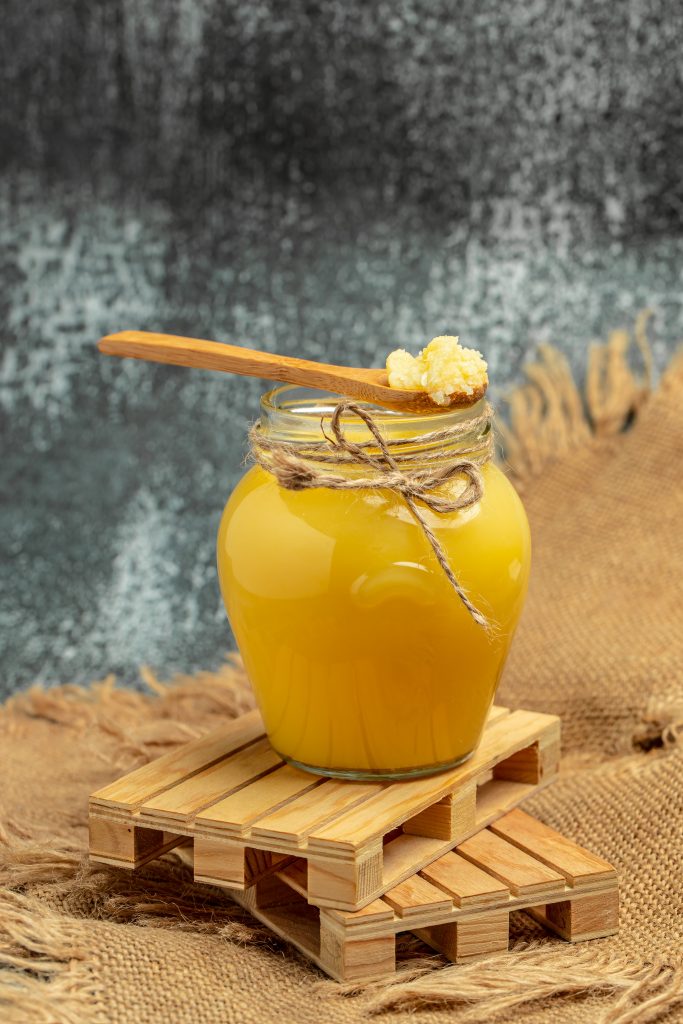
Contrary to popular beliefs that fatty foods should be avoided during menstruation, consuming a teaspoon of ghee with each meal can have numerous health benefits. Ghee, or clarified butter, is a traditional superfood in Indian culture and is known for its medicinal properties.
Ghee is rich in butyric acid, a short-chain fatty acid that plays a significant role in supporting a healthy gut. During menstruation, some women may experience digestive issues such as bloating, gas, or irregular bowel movements. Butyric acid in ghee has anti-inflammatory and antimicrobial properties that can help soothe and heal the digestive system, reducing discomfort and promoting regular bowel movements.
Moreover, ghee is believed to be beneficial for the skin. The nourishing fats and fat-soluble vitamins in ghee can contribute to skin health and hydration. During menstruation, hormonal fluctuations can sometimes lead to skin concerns. Consuming ghee can help maintain skin moisture and alleviate some of the skin issues associated with the menstrual cycle.
Ghee also provides a concentrated source of energy and essential nutrients, making it a valuable addition to the diet during menstruation. By incorporating ghee into your meals, you not only enhance the taste but also support your overall health and well-being during this time.
Also Check – 10 Effective Home Remedies to Stop Prolonged Periods
Ginger-
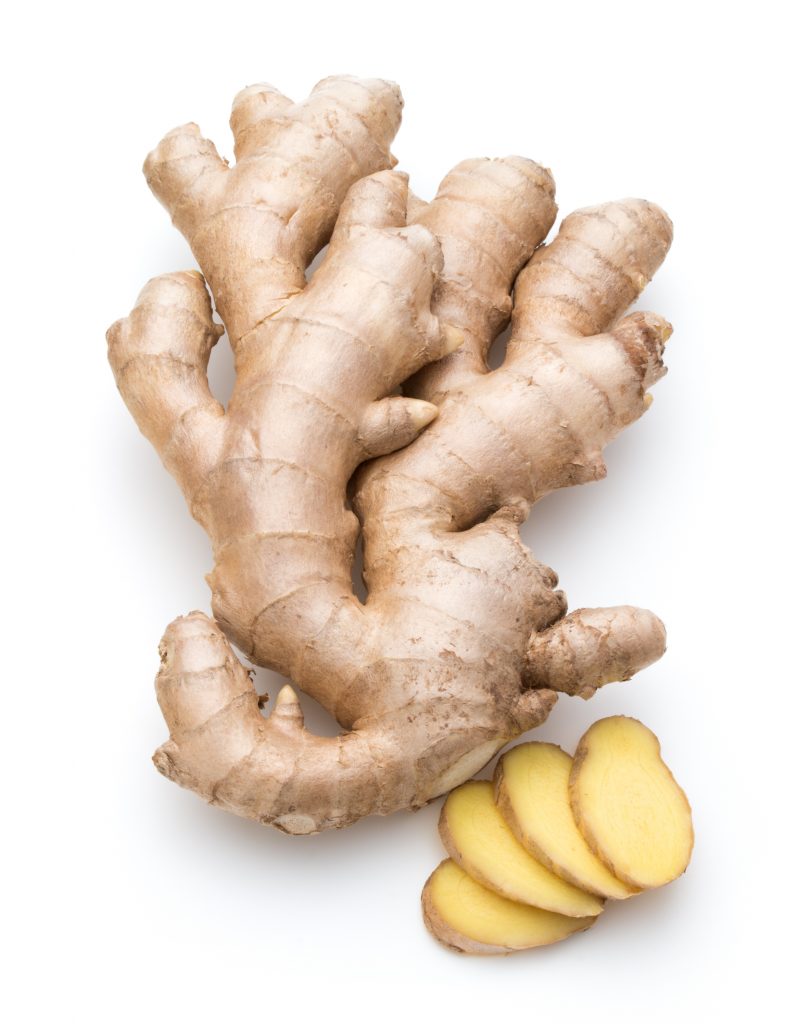
Ginger is a well-known spice with powerful anti-inflammatory properties, making it an excellent natural remedy for period pain. Menstrual cramps are often triggered by an increase in prostaglandins, hormone-like substances that cause uterine contractions. Ginger’s anti-inflammatory properties can help reduce prostaglandin levels, providing relief from menstrual cramps.
There are various ways to incorporate ginger into your diet during menstruation. You can grate fresh ginger and add it to your meals, such as soups, stir-fries, or curries. Additionally, brewing a soothing cup of ginger tea can provide comfort and relaxation during your period. Simply steep fresh ginger slices in hot water for a few minutes, and you have a calming beverage to enjoy.
Another option is to blend ginger into smoothies, combining its health benefits with other nutritious ingredients. This allows you to experiment with different flavours and textures while reaping the advantages of ginger’s anti-inflammatory properties.
Chamomile Tea-
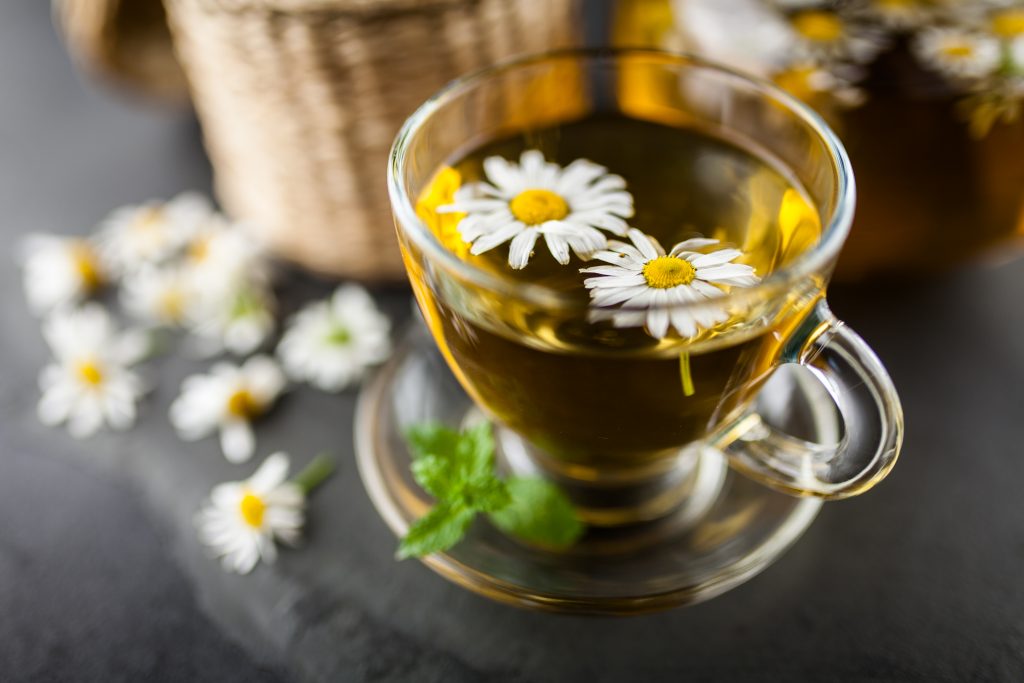
Chamomile tea has a long history of use as a natural relaxant, known for its calming and soothing effects. During menstruation, when hormone levels fluctuate, some women experience heightened stress, irritability, and anxiety. Drinking chamomile tea can be a gentle and effective solution to ease these symptoms, offering relief during your period.
The calming properties of chamomile tea can help reduce muscle tension and alleviate menstrual cramps. It contains compounds that have mild analgesic effects, providing comfort and easing pain during menstruation. Additionally, chamomile tea can help promote better sleep, which is essential for overall well-being, especially during your period when discomfort and hormonal changes may disrupt sleep patterns.
Furthermore, chamomile tea can be beneficial for managing PMS symptoms. By reducing irritability and anxiety, it can contribute to a more balanced emotional state during menstruation, making it a valuable ally in your self-care routine.
Hydration-
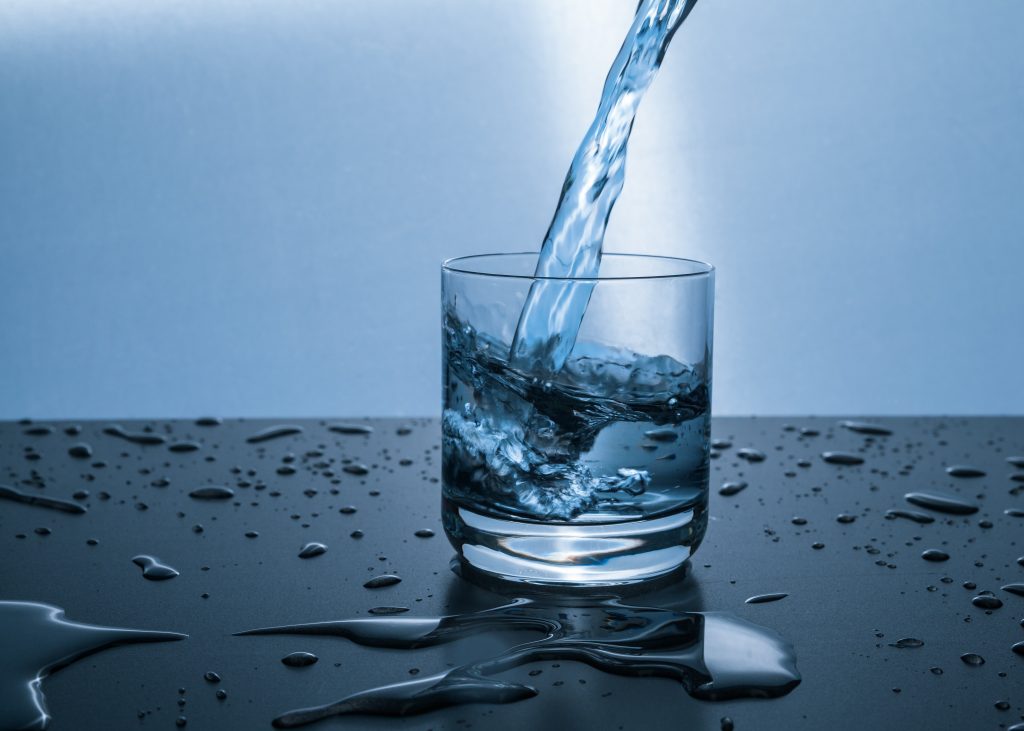
Staying hydrated is crucial during menstruation to support overall health and well-being. Drinking plenty of water helps flush out toxins from the body and aids in reducing bloating, which is a common discomfort experienced during periods.
Proper hydration supports optimal bodily functions, including digestion and blood circulation. During menstruation, some women may experience digestive issues, and dehydration can exacerbate these symptoms. By staying well-hydrated, you can support a healthy digestive system and alleviate discomfort.
To make hydration more enjoyable and flavorful, consider infusing your water with fruits like lemon, cucumber, or mint. These additions not only add refreshing taste but also provide additional health benefits. Lemon is a great source of vitamin C and can aid in detoxification, while cucumber is hydrating and helps reduce water retention. Mint can soothe digestive discomfort and add a pleasant aroma to your water.
Herbal teas are also an excellent option to stay hydrated while enjoying various health benefits. Herbal teas, such as peppermint or ginger tea, can further support digestion and provide comfort during menstruation. Opting for caffeine-free herbal teas ensures that your fluid intake does not contribute to dehydration.
Pineapples and Kiwi-
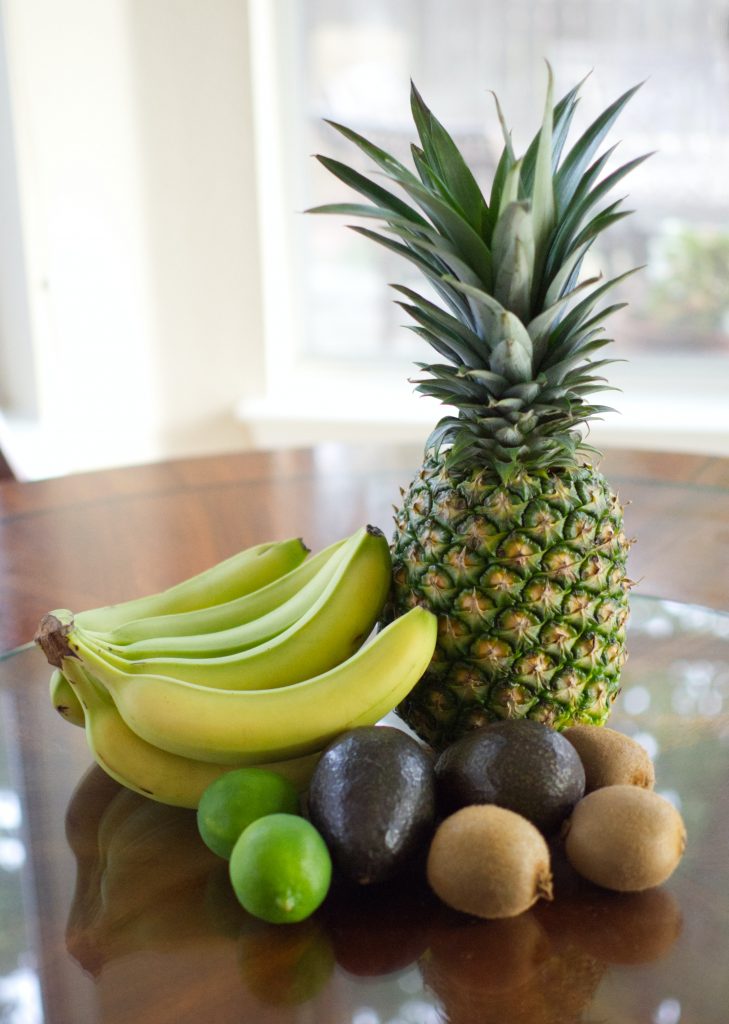
Pineapples and kiwi are two delicious and nutritious fruits that offer valuable health benefits during menstruation.
Pineapples contain bromelain, an enzyme with natural anti-inflammatory properties. During menstruation, inflammation can contribute to increased pain and discomfort. Consuming pineapples can help reduce inflammation and ease menstrual cramps, providing relief during this time.
Kiwi is rich in vitamin C, an essential antioxidant that supports the immune system. During menstruation, hormonal fluctuations may temporarily weaken the immune system, making it important to support it with adequate nutrients. Including kiwi in your diet during this time can help maintain overall health and well-being, promoting a healthy immune response.
Both pineapples and kiwi are also rich in other vitamins, minerals, and dietary fibre, contributing to a balanced and nutritious diet during menstruation.
Banish period discomfort and PMS blues with these remedies! Soak raisins, savour bananas, and embrace root veggies and whole grains. Discover the power of Aliv seeds, ghee, and ginger for a more comfortable cycle. Sip chamomile tea, stay hydrated, and enjoy pineapples and kiwi’s anti-inflammatory benefits. Let’s make periods manageable, one bite at a time!
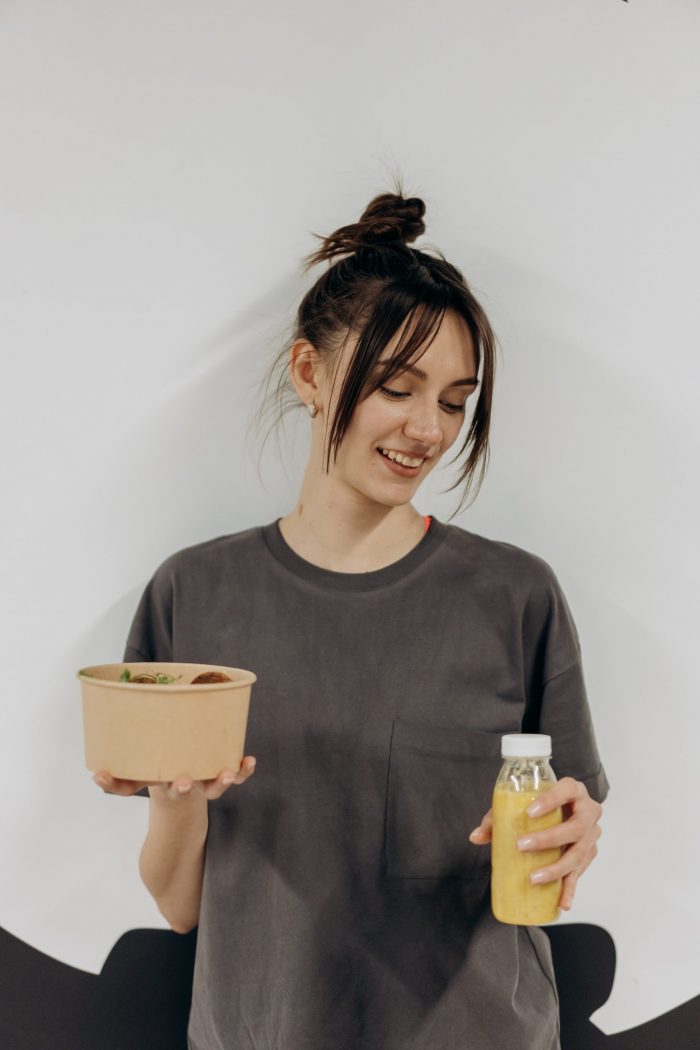
Leave a Reply